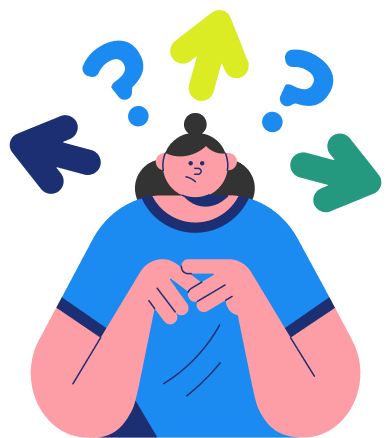Professional Mental Health Assessments In Singapore To Help You Gain Clarity, Answers, And Support.
Feeling unsure about focus, emotions, learning, or social challenges? Our clinical psychologists in Singapore offer supportive, evidence-based mental health assessments and diagnostic evaluations.

Explore Our Psychological Assessments
Psychological assessments are a vital tool for understanding an individual’s emotional, cognitive, and behavioural functioning. Whether you’re seeking clarity about a child’s learning challenges, a teen’s emotional struggles, or your mental health and wellbeing, psychological assessments can provide a structured, evidence-based pathway to understanding and support.
Assessments are conducted by registered clinical psychologists using validated tools and guided by professional standards. Our goal is to help individuals, families, educators, and healthcare providers make informed decisions with clear, evidence-based insights.
All Assessments
Neurodiversity and Neurodevelopmental Assessments
Cognitive & Intellectual Assessments
Academic & Learning Assessments
Emotional & Personality Assessments
Condition-Specific Assessments

Attention-Deficit/Hyperactivity Disorder (ADHD)
For those struggling with focus, impulsivity, or difficulty staying still, whether in childhood or adulthood, this ADHD assessment helps identify if ADHD may be a contributing factor. It combines clinical interviews, rating scales, and real-life history to understand how attention and behaviour are affected across different settings.
Common Questions & Scenarios:
“My child is always moving or gets distracted easily in school. Is it just energy, or could it be ADHD?”
“I have always struggled to focus and manage time. Could this be adult ADHD?”
“Do I need a diagnosis to get school or workplace accommodations?”

Autism Spectrum Disorder (ASD) Assessment
This assessment helps determine whether someone may be on the autism spectrum. It explores social communication, sensory responses, and behaviour patterns, using a strengths-based, developmental lens. Suitable for individuals of all ages.
Common Questions & Scenarios:
“My toddler does not seem to make eye contact or play like other kids. Should I be concerned?”
“I’ve always felt different socially, could I be autistic and not know?”
“Is this useful for understanding support needs at school or work?”

Cognitive Assessment (IQ Testing) & Giftedness
This assessment evaluates general thinking skills to identify giftedness, IQ range, or cognitive strengths and challenges. It can support school placement, enrichment decisions, or career planning across age groups.
Common Questions & Scenarios:
“My child’s teacher recommended gifted testing. What does it involve?”
“I’m curious if I’m underachieving compared to my ability.”
“Could this help explain why I’m good at some things but struggle with others?”

Intellectual Ability Assessment
This assessment measures verbal understanding, reasoning, memory, and processing speed. It’s useful for developmental profiling, workplace assessments, and disability support applications.
Common Questions & Scenarios:
“Can this help with DSA (Direct School Admission) or support documents?”
“I think I might have an intellectual disability. Can this assessment confirm that?”
“Will I get a report I can use for formal applications?”

Academic Achievement Assessment
This assessment identifies strengths and gaps in school-based skills like reading, writing, and mathematics. It’s suitable when academic progress is unclear or inconsistent.
Common Questions & Scenarios:
“My child is struggling in school despite trying hard. What’s going on?”
“We want to better understand which subjects they need support in.”
“Is this the same as a school psychoeducational assessment?”

Learning Disorders Assessment
When someone has ongoing struggles in reading, writing, or math, this assessment helps identify conditions like dyslexia, dyscalculia, or dysgraphia. It’s especially useful for school-age children or teens needing learning support.
Common Questions & Scenarios:
“My child mixes up letters or avoids reading. Could it be dyslexia?”
“Can this report help us get accommodations for school tests or exams?”
“What’s the difference between slow learning and a learning disorder?”

Social-Emotional / Personality Assessment
This in-depth look at your personality, emotions, and relationships can help if you're struggling with identity, emotional regulation, or interpersonal issues. It's also useful in therapy planning or when past experiences feel unresolved. It offers insights into how you relate to yourself and others.

Mood & Anxiety Disorders Assessment
Life can feel overwhelming when anxiety, sadness, or emotional ups and downs start affecting your sleep, work, or relationships. This assessment, conducted by a licensed psychologist, helps make sense of what you're feeling and provides professional insights into where support may be most needed.

PTSD Assessment / Screening
If you have not felt like yourself since a traumatic event, this assessment can help identify PTSD or trauma responses and guide a safe path to recovery. Our licensed psychologists provide structured support to help you understand and process what you have been through.

OCD Assessment
Obsessive-Compulsive Disorder involves distressing thoughts and the urge to carry out rituals to reduce anxiety. This assessment identifies these patterns, evaluates how they affect daily life, and helps determine the level of support needed.
Common Questions & Scenarios:
“I have thoughts I can not stop and things I feel I have to do. Is that OCD?”
“My teen is constantly washing hands or checking things. Is this normal?”
“Will the assessment tell us how severe it is, and what can help?”
How Mental Health Assessments Work At Intellect
Our process is designed to make sure you feel supported, informed, and never rushed.
1
Initial
Consultation
Talk to a psychologist
about your concerns
and goals.
2
Clinical
Recommendation
Get guidance on whether
a formal assessment Is
right for you.
3
In-Clinic
Assessment
Complete evidence-
based assessments with
a licensed clinician.
4
Report & Treatment
Planning
Receive a report with personalised recommendations.
1
Initial
Consultation
Talk to a psychologist
about your concerns
and goals.
2
Clinical
Recommendation
Get guidance on whether
a format assessment is
right for you.
3
In-Clinic
Assessment
Completed evidence-
based assessments with A
licensed clinician.
4
Report & Treatment
Planning
A personalised report
and next-step
recommendations.
When Should You Consider A Mental Health Assessment?
Many people believe their experiences are not 'serious' enough. A psychological assessment can bring clarity early on.
Trouble focusing
Tasks feel harder than they
should – even with effort.
Emotional ups & downs
Mood swings may be taking
a toll on your daily life.
Developmental concerns
Delayed speech, social skills,
or learning in children.
School or work struggles
Performance does not match
potential or effort.
Strained relationships
Finding it hard to connect
or manage conflict.
Requested by others
Teacher, doctor, or employer
suggested assessment.

Need Help Choosing?
If you are unsure which assessment is suitable, get in touch with our care team. We are here to help.
Why Intellect Is A Trusted Clinic For Mental Health Assessments In Singapore
Recognised by SPS, SRP and
SAC associations
Trusted by educators, parents,
and professionals
Reports accepted for school, work, or therapy use
Convenient locationsacross Singapore with flexible slots
Personalised evidence-based
care and support
Intellect supported hundreds of individuals and families to better understand their needs and take the next step forward.
Need Help
Deciding
Your Next Step?

Whether you are exploring a diagnosis, seeking clarity, or unsure where to begin, we are here to listen and guide you. No pressure. Just a conversation.
Frequently Asked Questions
How much does a mental health assessment cost in Singapore?
Pricing depends on the type of assessment and number of sessions. Our care team will guide you after the initial consultation.
Can I use the assessment report for school, work, or medical documentation?
Yes. Reports are written by clinical psychologists and are commonly used for accommodations or support plans.
What age groups do you assess?
We provide assessments for children (ages 5+), teens, and adults.
What happens during a psychological assessment?
It typically involves interviews, questionnaires, and structured tasks relevant to your concerns.
Do I need a referral from a doctor or school?
No referral is needed. You can reach out directly to book an assessment.
What if I’m nervous or do not know how to explain what’s wrong?
That is completely okay. It is common to feel unsure. Our clinicians are trained to guide you through the process gently.
What is a mental health assessment?
A mental health assessment is a structured process led by a licensed psychologist to understand how you think, feel, behave, and function. It may include conversations, questionnaires, or tasks, depending on the concern. The goal is to get clarity and guide support, not to label.
Why are mental health assessments important?
Mental health assessments help identify concerns like ADHD, anxiety, learning challenges, or emotional struggles early. They can guide treatment, school support, or therapy goals.
What are some signs that I or my child might need a mental health assessment?
Some common signs include difficulty focusing, emotional ups and downs, challenges in school or work despite effort, or social withdrawal. If something feels off, even if you are not sure what, an assessment can help bring clarity.



